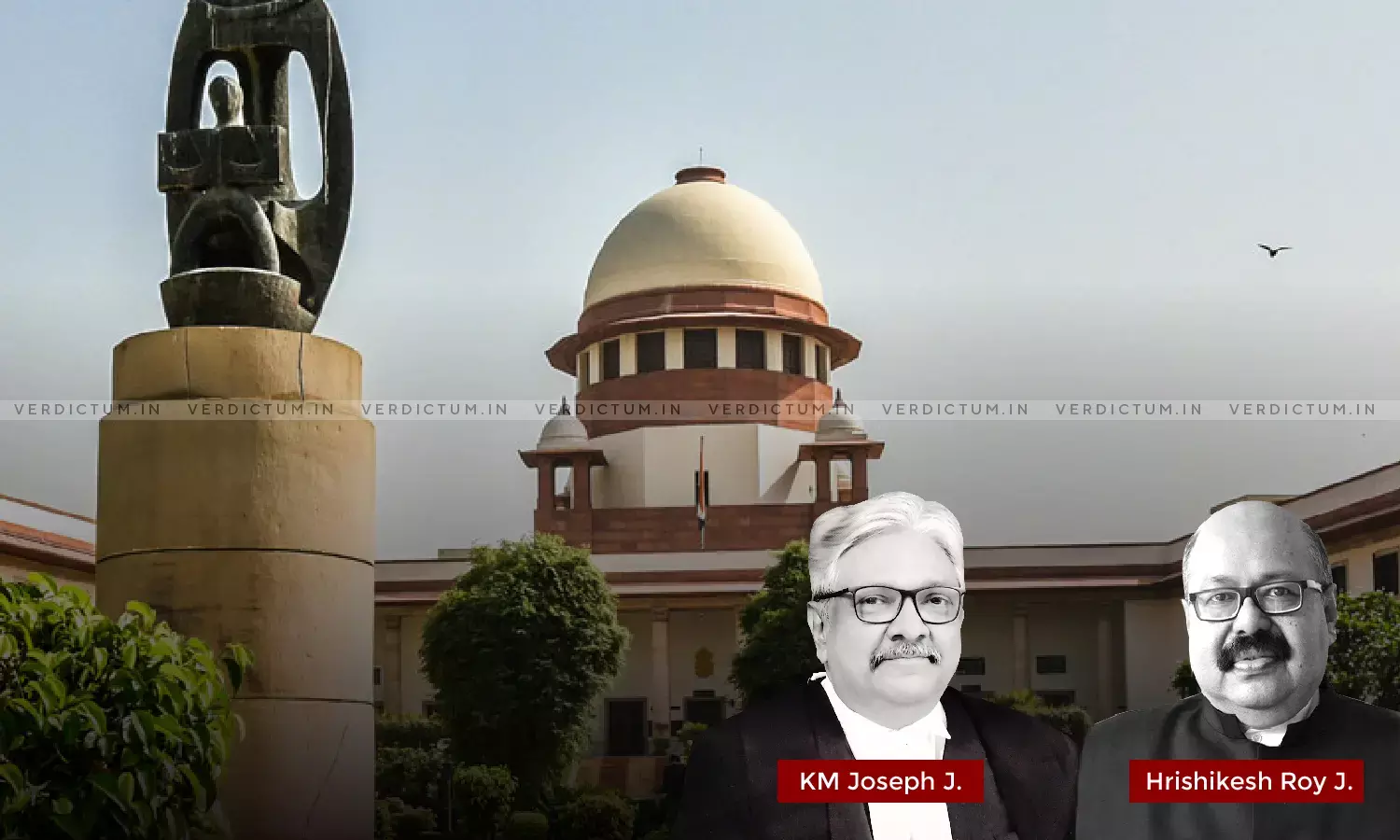Central Excise Tariff Act | Product's Incidental Purpose Can't Warrant Different Classification- SC Confirms MVAC Are Not Heat Pumps

A Supreme Court Bench of Justice KM Joseph and Justice Hrishikesh Roy upheld a decision passed by the Customs, Excise and Service Tax Appellate Tribunal (CESTAT) holding that the Modified Vapour Absorption Chillers is not a heat pump.
The bench observed that "The end use of MVAC (Modified Vapour Absorption Chillers)is to produce Chilled Water. The use of heat as one of the sources in the airconditioning system would not take away the primary or basic function of the MVAC, which is to cool and not heat water. The additional heating capability of the machine thus raises a peculiar dilemma, but then one can be guided by the market parlance test which shows that the machine is perceived and purchased only as a cooling device."
It was further held that "The conclusion therefore is inevitable that the MVAC machine must not be categorized as a Heat Pump. Consequently, it is declared that the product manufactured by the appellants merit classification under Sub-heading 8418.10 of the central excise Tariff Act, 1985, in the category of refrigerating equipment."
Senior Counsel V Sridharan appeared for the Appellant and Counsel V Chandra Bharathi appeared for the Revenue.
In this case, an appeal was filed under Section 35L of the Central Excise Act, 1944. The main issue for consideration was whether the Modified Vapour Absorption Chillers (MVAC) manufactured by the Appellant was classifiable as a heat pump under heading 84.18 of the Schedule to the Central Excise Tariff Act, 1985. It is pertinent to note that as per a notification issued in 1986, heat pumps falling under Chapter 84.18 enjoy a limited exemption from the levy of excise duty.
The appellant had classified their manufactured product by describing them as heat pumps, but the Assistant Commissioner of Central Excise negated such description. CESTAT also concurred with the decision.
The Supreme Court referred to the definition of heat pump as given in the Harmonious System of Nomenclature (HSN), and held that the MVAC manufactured by the Appellant did not satisfy the definition of heat pump. In that context, the Court noted that "The hot water, that is produced for generating chilled condition/ refrigeration, is only an incidental purpose of the MVAC and therefore classification of the appellant's product as a heat pump on this basis, would in our view, be irrational." Further, the Court also noted that "customers do not purchase MVAC because it produces hot water and in commercial parlance the manufactured product of the appellant is known as a Vapour Absorption Chiller used for air conditioning and refrigeration and not at all for heating purpose."
Applying the market/common parlance test, the Court observed that the Appellant had identified MVACs and heat pumps separately on their website, and the description of the MVACs did not mention the incidental hot water generating capacity. To that end, the Court remarked that the Appellants themselves did not recognise the hot water generating capacity of their MVACs.
Therefore, the Supreme Court held that as the MVAC machine could not be characterised as a heat pump, the product will not merit classification under heading 84.18 of the Schedule to the Act, 1985.
Consequently, the appeals were dismissed and the parties were left to bear their own costs.
Cause Title: M/s Thermax Ltd. through its Director v. Commissioner of Central Excise, Pune-1
Click here to read/download the Judgment

